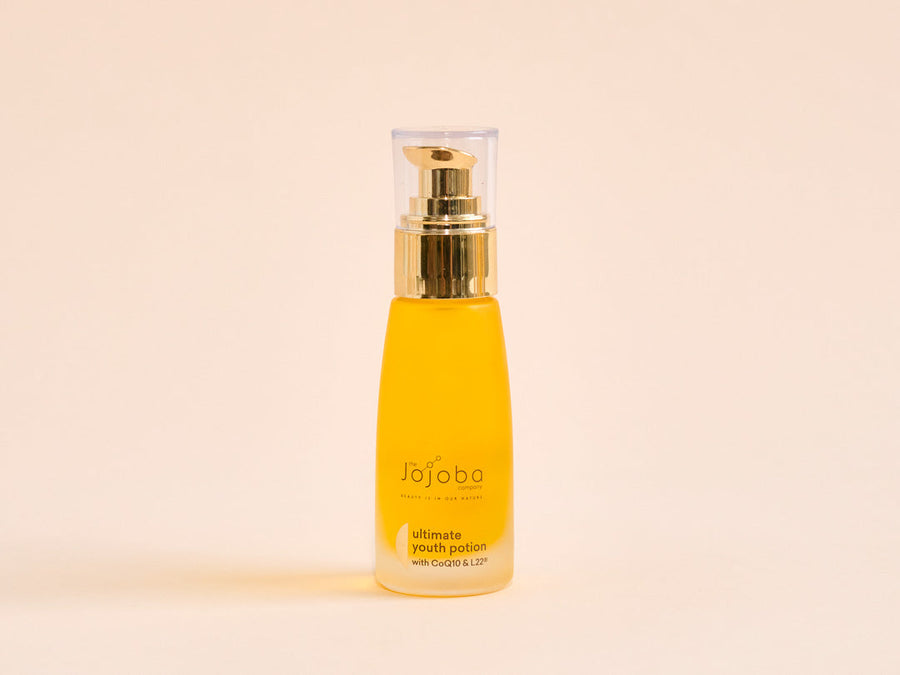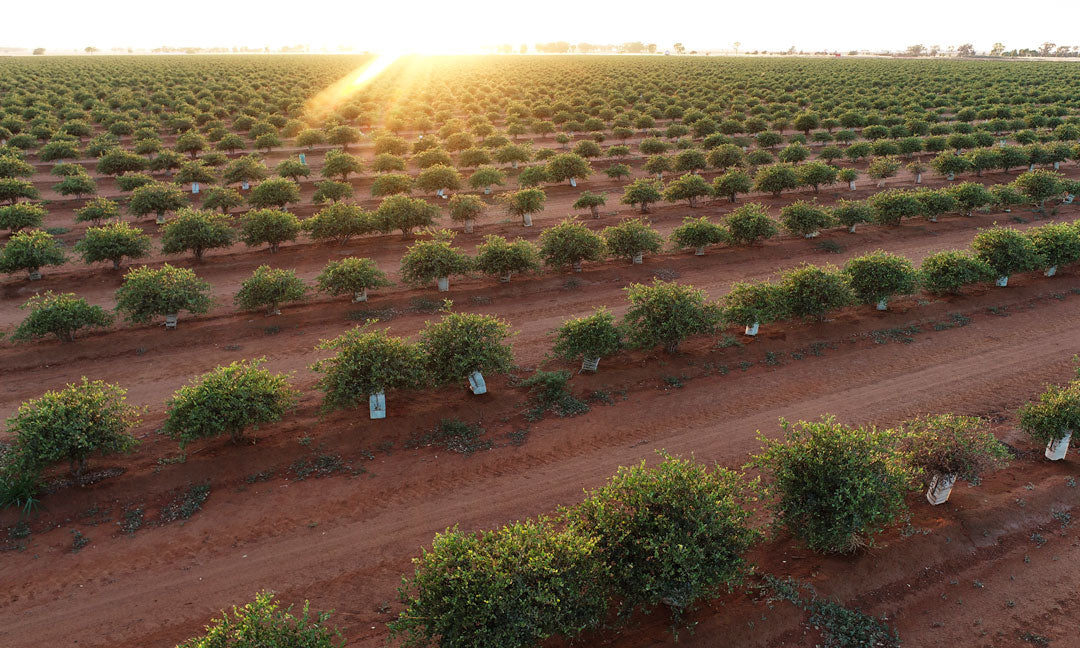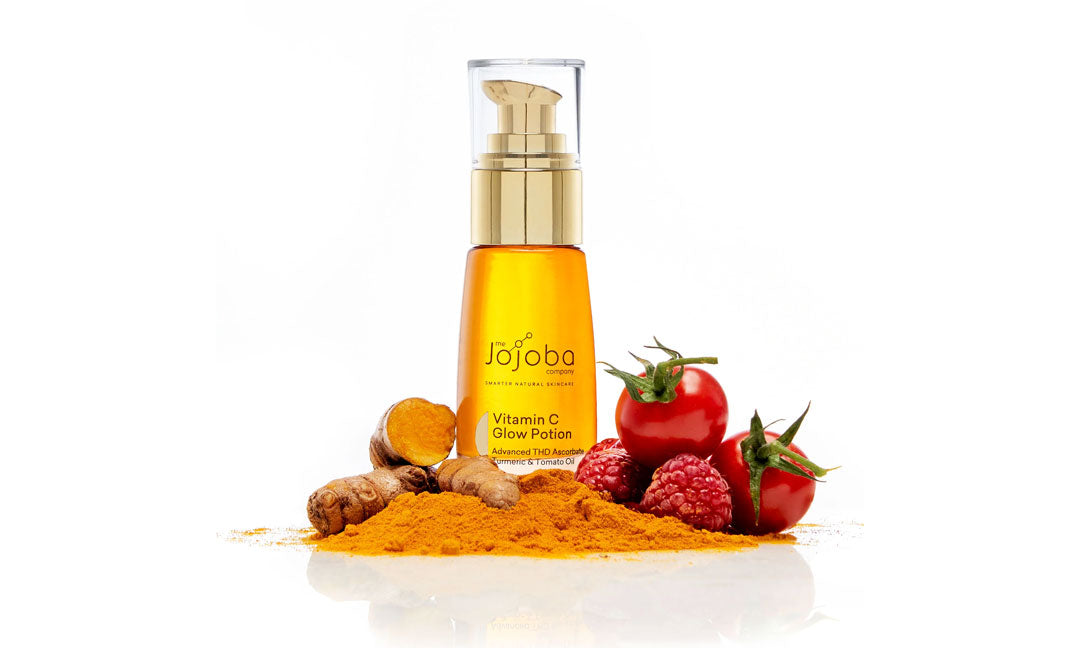Feeling Dry? We Are Here To Help

Homegrown on our Beresford Farm, our unique Wadi-Wadi is the finest jojoba on the planet. Grown in the nutrient rich soils in the Australian Riverina region, Wadi-Wadi is a the closest botanical match to your skin's oil meaning your skin recognises and accepts our golden liquid carrying its nutrients deep beneath the skins surface. Our products are clean and botanically derived, so Wadi-Wadi is designed for 8 billion skin types, tackling your skin concern from the inside out - the natural way. Help your skin, help itself.
While the terms are often used interchangeably, there is actually a very significant difference between dry and dehydrated skin. Granted, it might sound like splitting hairs, but understanding the concept of dryness versus dehydration can mean the difference between a good skin day, and a good skin life. Note: The latter is the end game, so consider this article your roadmap.
We bring this up now because winter has well and truly arrived, and despite numerous warnings, we still feel underprepared (and forgot our umbrella for the umpteenth day in a row). Both dry and dehydrated skins can worsen in winter thanks to internal heating, hot showers, wild weather conditions and increased caffeine consumption (or is that one just us?). You wouldn’t wear your strappiest summer sandals during a downpour, so why would you carry on with summer skincare in sub-zero temperatures. Winter is here, and we must adjust our products accordingly.
Whether you’re dry, dehydrated, both, or just confused, jojoba is gold standard as far as ingredients go, thanks to its wax ester structure and ability to form a protective barrier on the skin. We’ll go into more detail on what to use soon, but first, the basics. See below.
What is dry skin?
First and foremost, dry skin is a type (just like oily, combination or normal). It is exacerbated by certain environmental conditions, but at the core of it, skin that is dry lacks oil. This is because it produces less sebum than what is considered ideal, just like oily skin produces too much sebum.
What is dehydrated skin?
Dehydrated skin is a confusing dame because it’s a condition by which the skin lacks water. It’s not actually a skin type, but rather caused by external factors including the environment, not drinking enough water, temperature changes, damage to the skin’s barrier, and sun damage. The skin can go through periods of dehydration, for example at the turn of the seasons, during air travel, or after a few too many glasses of pinot the night before.
How do you tell the difference?
The easiest way to separate dryness and dehydration is by examining your skin’s texture. Dry skin will be uncomfortable, flaky, and itchy. Dehydrated skin will be dull and crepey – like the life has been sucked right out of it.
Another obvious sign of dehydration is that fine lines will be more visible than usual. Imagine a raisin: when it’s hydrated and full of water, it’s plump and juicy (not to mention great in fruit salad). When it’s dehydrated and the water is gone, it’s shriveled, and has lost that bouncy elasticity. It’s important to also note that oily, congested, or irritated skin can also be dehydrated.
So how do I get rid of dry and dehydrated skin?
Dehydrated skin: Because dehydrated skin is just a condition, you can fix it. The first step is to try and eliminate some causational factors, including showers that are too hot, excessive exposure to heating and air conditioning, and drinking enough water. Outside of this, skincare is your best friend.
As far as your regime goes, you want to use products that will keep water from evaporating. Try the Jojoba Company’s Jojoba Bead Facial Cleanser. Thanks to papaya enzymes, quandong and jojoba beads it will deeply clean and dissolve impurities, but won’t disrupt the skin’s barrier (which is essential for keeping the moisture in).
When it comes to dehydration, hyaluronic acid is your best friend. It’s a molecule that can hold 1000 times its weight in water, even drawing it from the air, and into your skin (a true hero in skincare if there ever was one). The Jojoba Company’s Ultimate Serum contains hyaluronic acid, along with jojoba to reinforce the skin’s barrier, again so water can’t evaporate.
Follow up with a moisturiser: If your skin is oilier, The Jojoba Company’s Daily Light Moisturizer won’t leave you greasy. If you’re on the drier side of things, The Hydrating Day Cream is perfect. If you crave a thicker, buttery option at nighttime, the Overnight Renewal Cream is rich in hyaluronic acid and plant oils, meaning it will quench dehydration, and replenish lipids. Drink a glass of water while you massage it in for good measure.
Dry skin: While we’d love to share how to get rid of dry skin, the truth is that you can’t change the amount of oil your skin produces. You can however bolster the levels with topical products. Stay away from drying foaming cleansers and instead try The Jojoba Bead Facial Cleanser. It’s loaded with natural jojoba beads to nourish and cleanse, and isn’t jagged or gritty, so will gently buff away any flakiness while leaving skin soft and supple. Face oils for dry skin are also absolutely necessary to infuse some lipids back in. The Jojoba and Rosehip oil mix is silky and easily absorbed, and thanks to jojoba’s wax ester structure, it penetrates the epidermis and carries nourishing ingredients where they’re needed.
As far as a moisturiser for dry skin goes, the Overnight Renewal Cream contains jojoba, buriti oil, argan oil, shea butter and coco butter to replenish oil levels and leave skin plump and hydrated. It’s rich and smooth, and feels like heaven on tight winter skin.







